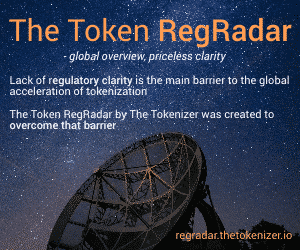EPIK Systems Partners with Charoen Pokphand Group to Lead Carbon Credit Tokenization Initiative
EPIK Systems is helping Charoen Pokphand Group (CPG), one of the world’s largest agriculture conglomerates, turn their carbon credits into tokens on the blockchain.
Consumers are increasingly demanding responsible environmental stewardship from brands and corporations, even in regions where carbon minimization has not been formally mandated by local governments. Voluntary carbon credits have emerged as a popular market-based solution to connect greenhouse gas-reducing projects with capital and allow funders to count the resulting reductions against their own carbon footprint.
Projects can fall under many categories, such as renewable energy, forest conservation, or fuel efficiency. While each credit counts quantitatively as one ton of carbon removed, replaced, or avoided, they also carry varying soft benefits that tend to align with any number of the United Nations’ Sustainable Development Goals. Combined with the fact that there are several different standards at the local and international levels that any given project can seek certification from, prices per credits can vary from less than $1 USD to greater than $15 USD. Moreover, in a market where most transactions are done in an Over-the-Counter (OTC) fashion, opacity about credit origins can be high while price discovery efficiency is low.
“Using blockchain to tokenize carbon credits really serves two distinct purposes. The first is that the credits are turned into an easily transferrable digital unit of account, and the second is that their origin and transaction history are encoded into the ledger forever,” said Alex Otsu, blockchain strategist at EPIK.
CPG is familiar with carbon credits, as some of their business units earn them while others buy them. However, coordinating a central record of all carbon activity across so many different entities has proven challenging.
“Just having an easy way to gain visibility of our carbon credit work group-wide would be huge for us,” said Reed Anderson, CTO of True Digital Group, a subsidiary of CPG piloting the tokenization program. “And by using the blockchain’s public ledger, we can not only have that for ourselves but also make it open for the rest of the world to audit. We really think this can set a strong precedent for transparency in the region.”
In addition to improving provenance and traceability, a blockchain serving as a central location for credits from many different registries to intermingle lays the groundwork for a robust market where participants can search, buy, sell, and retire carbon credits with less friction and greater variety than ever before.
“There’s really no limit to what tokenized assets can do. Traceability and liquidity are just the beginning, so we have been thrilled with CPG’s willingness to innovate in this space.” said Tim O’Neal, cofounder and CEO at EPIK.
Photo by Karsten Würth on Unsplash
More Stories:
EYFI Finance (EYFI) Open Doors to Revolutionary Investment Platform
You Might also Like















